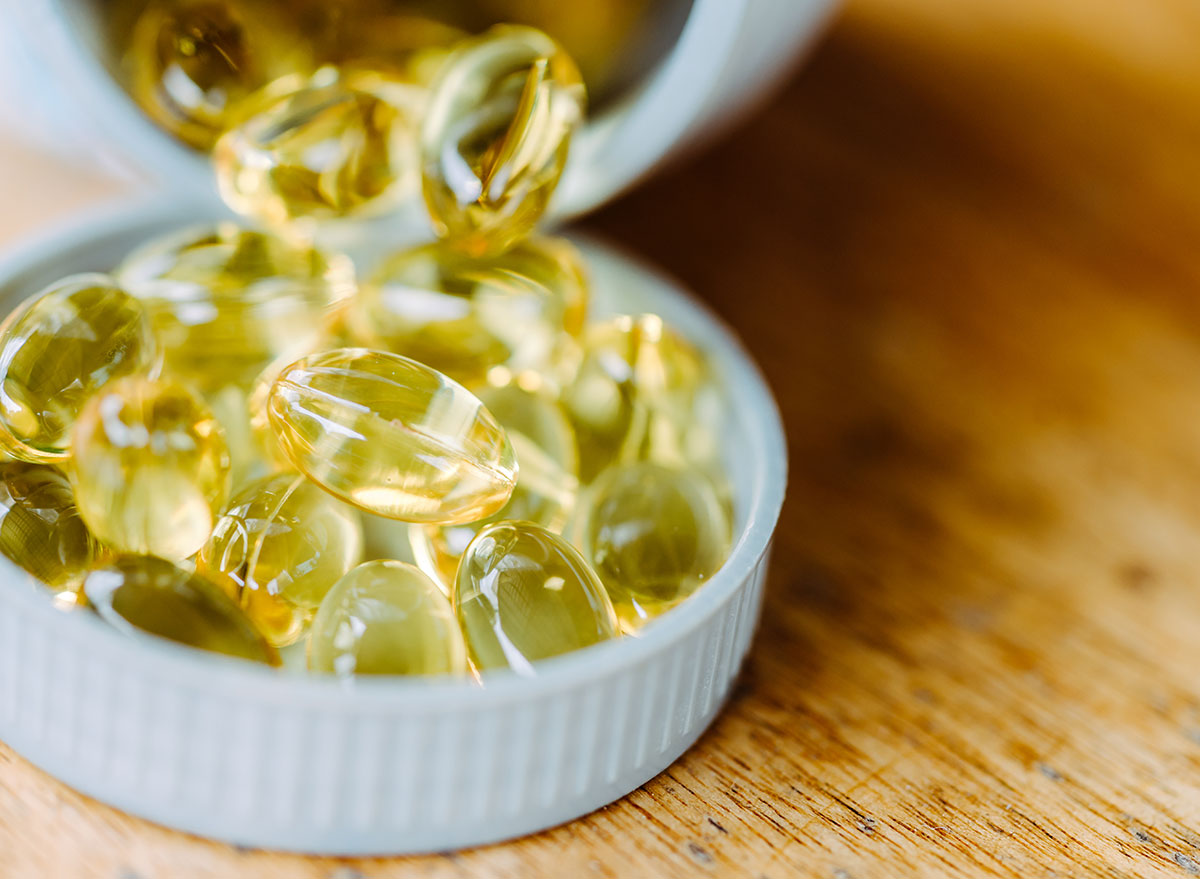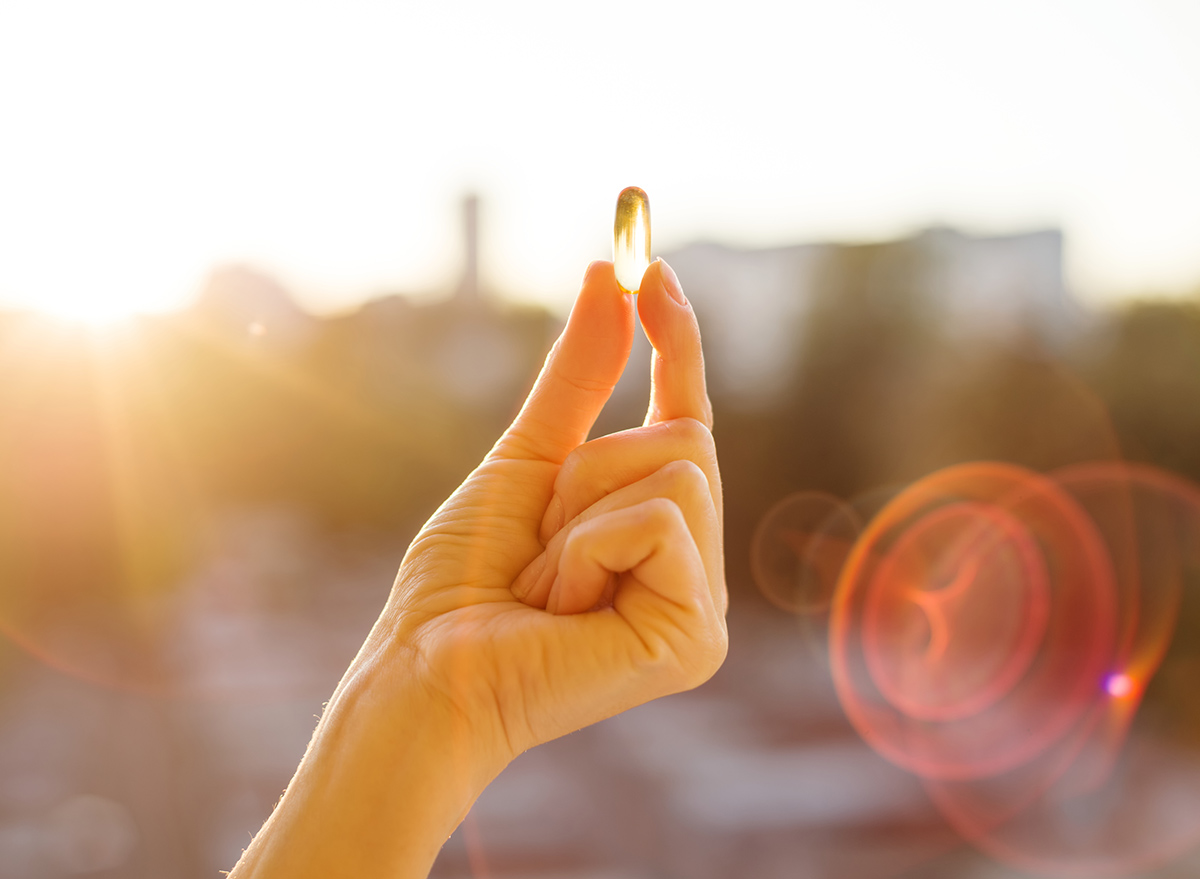The Final Verdict on Whether You Should Take Vitamin D Supplements

Vitamin D is among the top three most common deficiencies in the US. So, that explains why a 2020 ConsumerLab.com survey found that vitamin D remains the most popular supplement, with 66% of respondents buying it. There’s no denying vitamin D is important: it plays a key role in bone health, as well as supporting immune health, brain cell activity, and muscle function. But should you be taking vitamin D supplements? Are they actually effective?
According to experts, most people could benefit from these supplements—particularly vegans and those who get limited sun exposure because they live somewhere with long winters. It’s also worth noting that your vitamin D needs increase after the age of 70, making it more difficult to meet the daily requirement.
“People with low vitamin D levels may experience fatigue, mood changes, and muscle weakness,” says Jamie Nadeau, RD. “Maintaining optimal vitamin D levels supports your immune system which is responsible for fighting bacteria and viruses, lowers your risk for osteoporosis, and studies have also shown that low vitamin D levels are associated with an increased risk for depression. The best thing you can do to determine whether or not you need a vitamin D supplement is to visit your doctor and ask to have your vitamin D levels checked.”
Once your doctor has determined that you have a deficiency via blood tests, they may suggest taking a vitamin D supplement, or a multivitamin with vitamin D. The recommended dietary allowance (RDA) for vitamin D is 600 International Units (IU). However, Ana Reisdorf, MS, registered dietitian at Wellness Verge, says that’s the minimum—and she actually advises aiming for closer to 1,000 to 2,000 international units (IU).

“Overt signs of vitamin D deficiency, like weak bones or extreme fatigue, are rare,” says Reisdorf. “But if you work inside and live in a colder climate, you likely need a vitamin D supplement. In fact, I think everyone should take a vitamin D supplement right now. Most of us spend way too much time indoors and don’t get enough vitamin D, which comes from the sun.”
Indeed, spending some time in the sunshine can trigger your skin to make vitamin D—but how much it makes depends on a variety of different complicated factors, like the season, latitude of your location, your skin pigmentation, and the time of day. And unfortunately, wearing sunscreen can block the sun from penetrating your skin, which is what allows your body to synthesize vitamin D.
“Experts say that between 5 to 30 minutes of unprotected sun exposure of the face, arms, hands, and legs may be enough, however, unprotected sun exposure is not recommended due to skin cancer risk,” says Nadeau.
Vitamin D is also found naturally in some foods, like salmon, tuna, sardines, egg yolks, and beef liver—and it’s also added to some foods, like fortified milk, orange juice, and cereal. Still, Reisdorf adds that vitamin D supplements may be more effective, simply because most foods don’t fulfill the RDA, meaning you’d have to eat large quantities of them to meet your needs.
According to Reisdorf, a vitamin D supplement can not only improve bone health, but also help with your energy levels, weight management, and immunity. And if you still need more reasons to start supplementing, consider that a 2021 study published in the journal Nutrients found that you have a 0% chance of dying from COVID-19 if your vitamin D3 levels are 50 ng/mL.
The bottom line? A vitamin D supplement can offer numerous health benefits, and if you don’t get enough vitamin D through your diet and/or sun exposure, it’s definitely a good idea to take one. All that said, it is possible to have too much of a good thing. So, be careful not to take more than 2,000 IU of vitamin D supplements, says Reisdorf. Because it’s a fat-soluble vitamin, it can cause toxicity at excessively high levels.
For even more vitamin D tips, read these next: